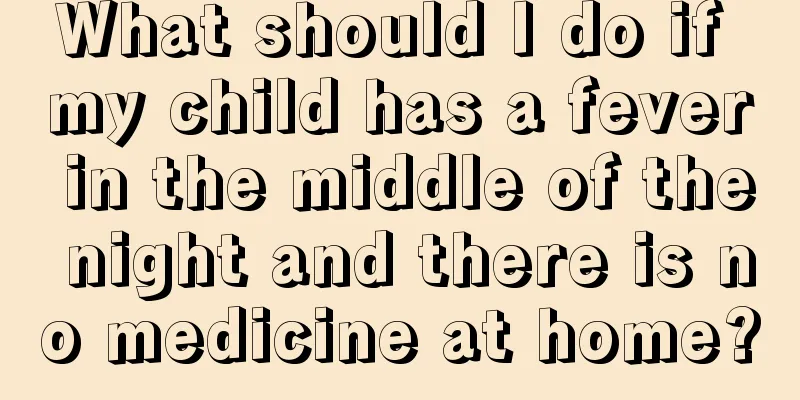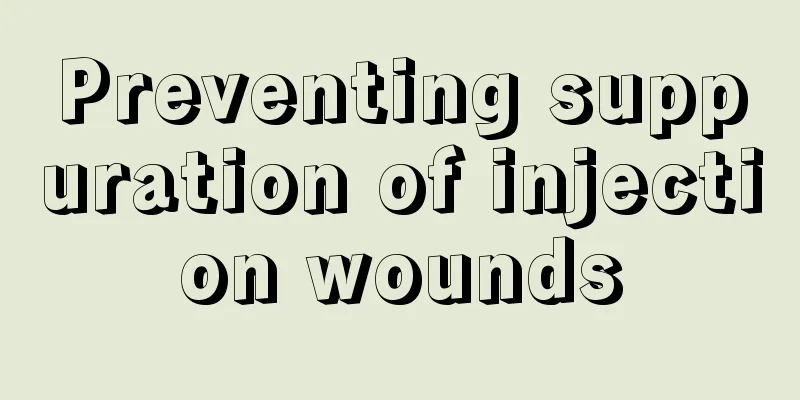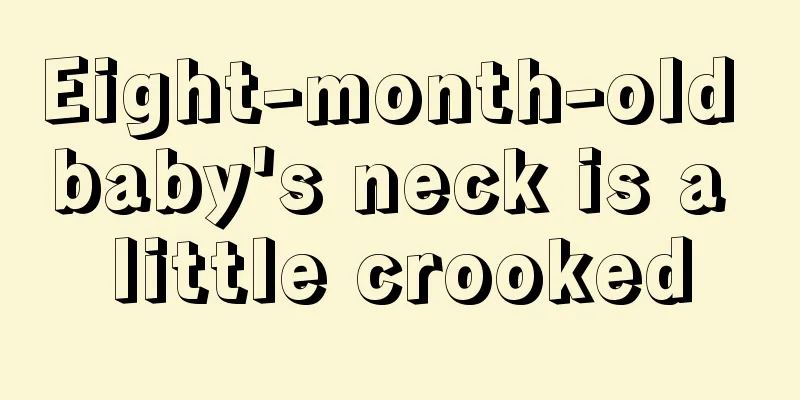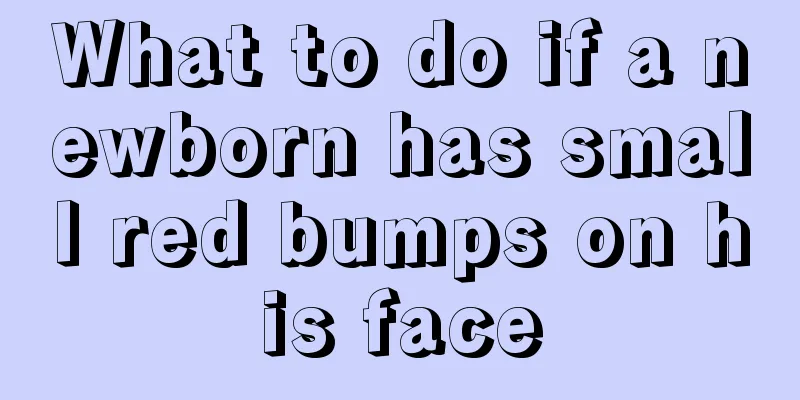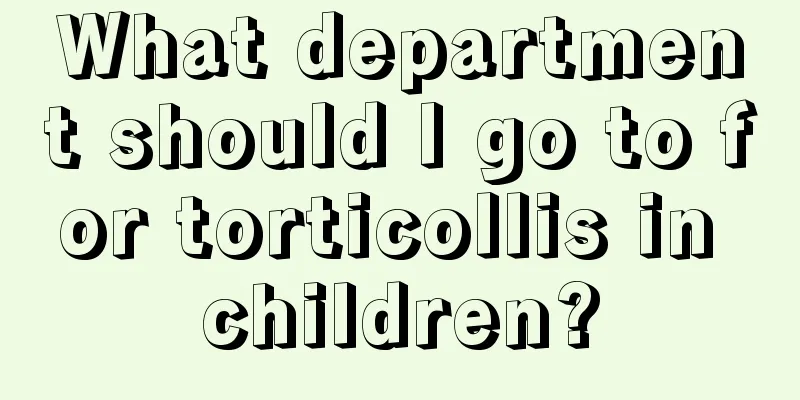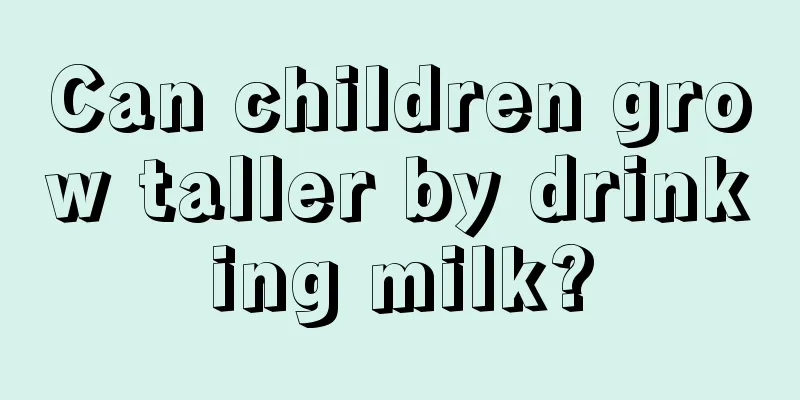The reason why babies fart a lot
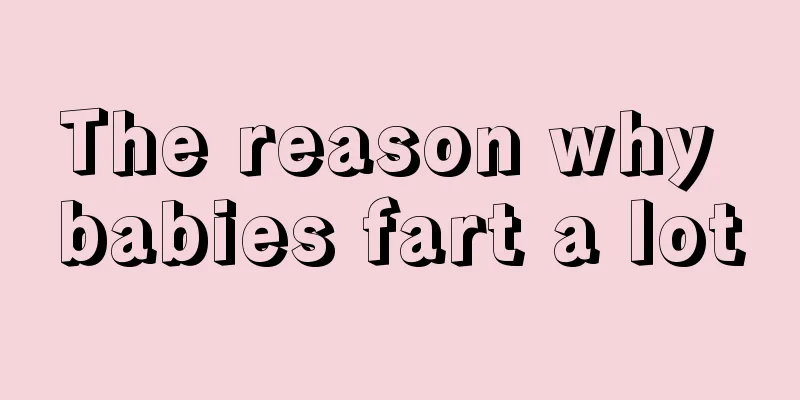
|
Parents think it's fun when babies fart occasionally, but many parents are worried if their babies love to fart and fart a lot, because if babies love to fart, it means there is a problem with the intestines. Many parents are particularly worried about their children's health, so they want to fully understand the reasons why babies love to fart. The following content gives a detailed introduction so that you can have a comprehensive understanding. 1. The baby's gastrointestinal tract is immature, which causes uncoordinated intestinal peristalsis, intestinal bloating and frequent farting; 2. Swallowing too much air when crying or feeding; 3. The mother has too much milk. She feels full every time she breastfeeds after eating the foremilk which is higher in protein and water, but eats very little of the hindmilk which is higher in fat. The stomach will empty quickly and discharge excess lactose into the intestines, causing increased intestinal fermentation and gas production. In addition, gas is also easily produced after some protein is digested. 4. Breast-fed babies whose mothers eat too much irritating food; 5. The baby wants to defecate, and farting is also a signal that the baby is defecate. Three types of baby farts 1. Stinky farts: Continuous farting or hiccups with a sour and smelly odor are signs of indigestion in babies. You should reduce the amount of milk, add boiled water, reduce the intake of fat and high-protein foods, and make the food thinner. 2. Empty farts: Farting is intermittent and continuous, but without any odor. It is mostly caused by increased intestinal motility due to hunger after the gastrointestinal tract is emptied. You may also hear bowel sounds, which means your baby is hungry and should be fed promptly. 3. Frequent farts: Frequent farts and feces are often caused by the baby eating too much food with high starch content. At this time, you should reduce the intake of food with high starch content and appropriately increase the amount of protein and fat food. If the baby farts a lot, parents must pay attention to it, because it means that there is a problem with the child's intestines or other aspects. In order to improve it as soon as possible, we must first find out the reason why the baby farts. After finding the reason, see where the problem lies. Then correct treatment can improve the condition as soon as possible. |
<<: Rehabilitation training methods for language delay
>>: Reasons for gurgling abdominal sounds in children
Recommend
What should I do if my 1-year-old baby has a cold and cough?
It is normal for children to catch a cold and cou...
What are the hazards of baby walkers?
Walkers have always been loved by many parents, b...
What should I do if my child won’t stop coughing? These remedies work!
Everyone knows that children often cough, so many...
What to do if red spots appear on children's bodies
I believe everyone knows the importance of skin t...
What are the symptoms of fright in children?
Children are very sensitive to many things in lif...
Why does an 8-year-old boy urinate frequently?
If an eight-year-old boy has frequent urination, ...
How to solve the problem that children don’t like to study?
Nowadays, many parents are very distressed about ...
Causes of cold in four-month-old babies
In fact, babies need careful care in all aspects ...
What should I do if my child urinates frequently before bedtime?
Many children will shout that they want to pee be...
What are the reasons why babies sweat on their heads at night?
What are the reasons why babies sweat on their he...
Why is there so much mucus?
We all know that nasal mucus is the excess waste ...
The child has allergic purpura
Allergic purpura is a relatively common disease a...
How to repair scars in children?
There are many reasons that may cause scars on ch...
What should children eat if they don’t grow taller?
As parents, we all want our children to grow up h...
The child is one and a half years old and still can't walk
In the process of a child's growth and develo...
